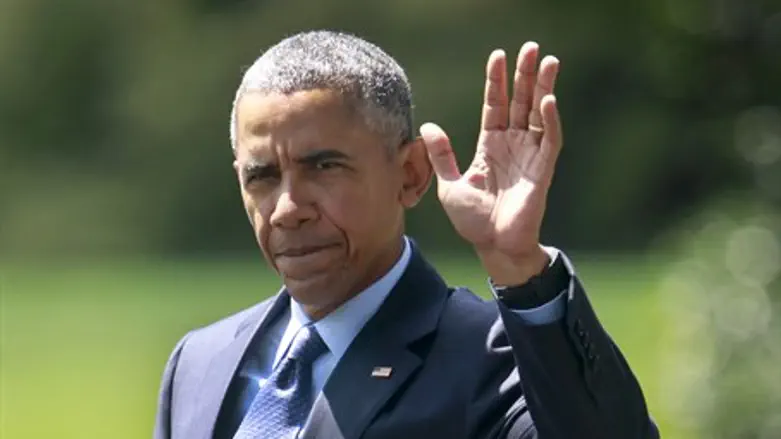
President Barack Obama on Sunday signed an order directing his administration to begin issuing waivers to Iran nuclear sanctions, USA Today reported.
The waivers will only go into effect, however, once Iran meets its obligations under the agreement limiting its nuclear program, according to the newspaper.
The presidential memorandum marks what is being called "adoption day" for the international agreement intended to roll back Iran's nuclear program.
"Today marks an important milestone toward preventing Iran from obtaining a nuclear weapon and ensuring its nuclear program is exclusively peaceful going forward," Obama said in a White House statement released Sunday afternoon.
Obama directed Secretary of State John Kerry to issue the waivers and to "take all appropriate additional measures to ensure the prompt and effective implementation of the U.S. commitments" in the agreement.
Sunday marked 90 days since the United Nations Security Council approved the agreement that was reached in July between Iran and the six world powers.
"So adoption day is a calendar-driven event and it’s the day at which all the parties begin to take the steps they need to make sure they take to get to implementation day," explained State Department spokesman John Kirby, according to USA Today.
"And we’re not at implementation day; that’s a whole different purpose," he stressed.
Most of the sanctions being lifted apply only to non-American citizens and companies doing business with Iran. Most sanctions will still apply to U.S. citizens under separate sanctions imposed on Iran for its support of terrorism and human rights violations. But sales of civilian passenger aircraft and handicrafts — most notably carpets — will be allowed, noted USA Today.
Meanwhile, the European Union on Sunday also adopted a legal framework for lifting sanctions imposed on Iran.
The accord "brings us a step closer to the beginning of implementation of the (July deal), to which we are strongly committed," EU foreign policy chief Federica Mogherini said in a joint statement with Iranian Foreign Minister Javad Zarif that was quoted by AFP.
The sanctions imposed by the West over Iran’s nuclear program severely hurt the country’s economy several years ago, as in 2013 the Iranian rial plummeted to an all-time low.
The agreement signed in July will see sanctions on Iran being lifted despite its suspicious activity.
International Atomic Energy Agency (IAEA) Director General Yukiya Amano was recently granted brief access to the underground Parchin facility, which the West suspects has been a key site used to test nuclear detonators, during a one-day visit to Iran, although his tour was a far cry from a full inspection of the site.
He later said that there is no need for a second visit by the agency’s inspectors to Parchin. This was said despite the fact that prior to Amano's visit, local experts, without the presence of UN inspectors, collected samples from the suspicious site and then handed them over to the IAEA.
